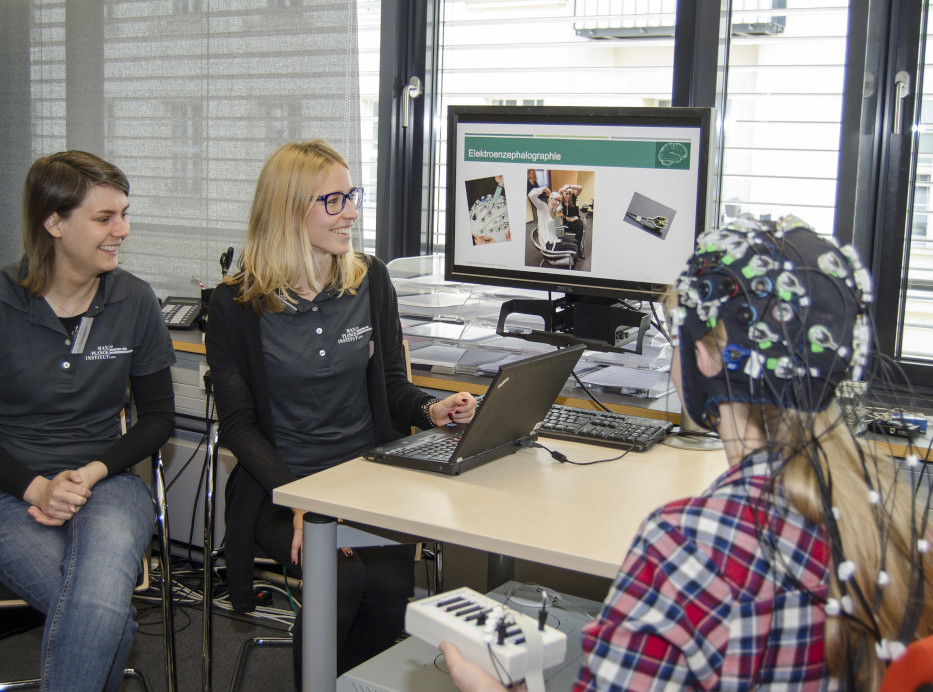Max Planck Institute for Human Cognitive and Brain Sciences
By Team WissensSpuren and MPI CBS
In 1995, the Max Planck Institute (MPI) for Neuropsychological Research was founded in Leipzig. From 2003, it was expanded by merging with the MPI for Psychological Research, which was previously based in Munich. The new institute is called MPI for Human Cognitive and Brain Sciences (MPI CBS). By uniting the two institutes, the Max Planck Society has considered the development that psychological and neuroscientific research is moving ever closer together all over the world.
History of the Building
Bibliothek. © Architekturfotografie Krumnow
History
Leipzig was chosen as the location for an institute in order to build on the city’s importance as the cradle of experimental psychology. This field of work was initiated in the middle of the 19th century by the work of the Weber brothers in physics and medicine. The world’s first institute for psychology was then founded under Wilhelm Wund.
The Planck Institute for Neuropsychological Research was founded in 1995 with the founding directors Prof. Angela D. Friederici and Prof. Ives von Cramon. It temporarily moved into rented rooms on Inselstraße and then moved into its own building complex on Stephanstraße.
From 2003 the institute was expanded to include the Munich MPI for Psychological Research. This brought decisive advantages: new research perspectives emerged for the previously predominantly behavior-based work of the Munich scientists in exchange with the neuroscientifically oriented Leipzig working groups. Conversely, they benefited from the broad, behavioral science-oriented environment and the experimental methods developed in Munich.
Education and Research
The institute is an internationally renowned institute for research into the foundations of human cognition. The main focus of the research is on the basic mechanisms of human thought and the neural foundations of higher brain functions such as language, memory, orientation, music and communication. Furthermore, the plasticity of the brain and its influence on various cognitive abilities are investigated, as well as the neural and hormonal foundations of lifestyle diseases such as high blood pressure and obesity. To investigate these questions, psychological and behavioral science tests are combined with neuroscientific scans of brain activity. In the summer of 2007, a 7-Tesla scanner was inaugurated—one of the first of its kind globally, offering unparalleled field strength for researchers. In 2016, the super brain scanner Connectom was added — one of the best brain scanners in the world when it comes to the internal wiring of the brain, and the only one of its kind on the European mainland.
Today, the institute consists of four departments and several independent research groups. These teams include researchers from diverse fields such as physics, philosophy, biology, linguistics, psychology, mathematics, computer science, and medicine. This interdisciplinarity is indispensable since experimental researchers can only derive new insights from imaging data if the data is accurately analyzed and interpreted. The analysis of imaging signals using complex computational models is, therefore, a fundamental part of the daily routine. The institute also houses its own library, offering a theoretical knowledge base with 325 specialized journals and over 16,000 resources.
Outreach

school portal. © MPI CBS
- Sites
- Research Institutes
- Max Planck Institutes
- Max Planck Institute for Human Cognitive and Brain Sciences
- Science Quarter